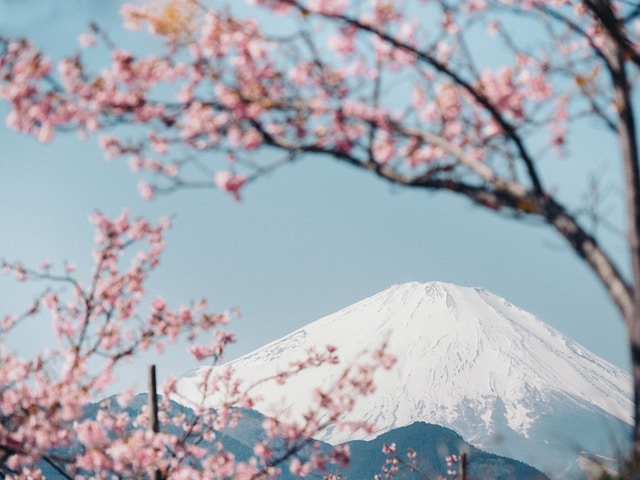“Resolution and Independence” was composed by Wordsworth in 1802 but not published until five years later. What is characteristic about this poem is Wordsworth’s selection of the most uncompromising subject and then making it the source or occasion of one of his profoundest comments on the life of a poet.
The uncompromising subject that Wordsworth has selected is that he makes a leech-gatherer the central figure of this poem. That is, he chooses the most unpoetic occupation or rather the most unheroic hero for his poem. In doing so, Wordsworth challenges contemporary ideas of decorum and elevation in subjects selected for poetry. But having said that, the real subject of the poem is not the leech-gatherer as much as it is the poet and his fate.
The poem begins with a spring morning after a storm that has raged all night only to leave behind a serene morning. The morning is a time of promise as everything speaks of birth, of fertility and new life. Similarly in stanza II, the emphasis is on the fertility of nature; on the life which springs from sun and rain and earth. This fertility of life is also expressed in the animal vitality of the hare. Now this is a common symbol of fertility—leaping and racing in uncontrolled joy. This description of the perfect harmony and life of nature leads Wordsworth to reflect on his own condition not as person but as a poet.
When the poet introduces himself in stanza III, it is as one who shares nature’s happy mood. It is interesting to note that Wordsworth was happy as a boy; through nature he recaptures the joy he knew before he experienced that the ways of men saddened him. Wordsworth reminds us that the ways of men indeed are ‘vain and melancholy’ and that there is a huge gap between the harmonious life of nature and man’s own existence. In the next stanza, we observe a sudden reversal of feeling. The very excess of joy leads man to a sense of what he has to lose and therefore to fear of the future. Since the capacity for enduring pain is proportionate to the capacity of enjoying joy, the poet as a man of ‘more than the usual organic sensibility’ must experience the extremes of both.
The poet is plunged into the depths of dejection, oppressed by nameless ‘fears and fancies’. This condition is more keenly felt by the poet but then it is common to men. The nature of man’s fears of the future, and of his exile from the world of the hare and the stock-dove, is made clearer in the following lines:
‘But there may come another day to me—
Solitude, pain of heart, distress and poverty.’
The poet, more than other men, must if he is to pursue his vocation avoid being absorbed in materialistic and worldly pleasures. Wordsworth regarded the pursuit of worldly ambition as a grave obstacle to poetic commitment. Yet without care and provision for the future, the poet is exposed to a fear of ‘Solitude, pain of heart, distress and poverty’. A commitment to life without ‘over-anxious care’ is in one sense a necessary part of the poet’s task; but it brings with it a dilemma for, as Wordsworth suggests here, he has no right to expect others to care for him if he is unable to do so for himself. This leads him in stanza VII to a consideration of other poets, in particular Chatterton, ‘the marvellous boy’, and Burns, who died young and poor, and to the fear that perhaps to be a poet is to be condemned to misery and defeat.
It is at this point that Wordsworth becomes suddenly conscious of the old man before his eyes. It is as though the leech-gatherer is a visitant from another world, suddenly materializing before the gaze of the poet. The various suggestion made about the leech-gatherer combine to give a visionary quality to the poet’s experience. In the next stanza the old man is compared with a huge stone which lies on the top of a bald hill, causing all observers to wonder how he came to be there. This suggestion of the old man as emerging from the total pattern of the universe is carried further when he is described as being ‘Like a sea-beast crawled forth…’ The old man, for all his apparent wretchedness, feels no separation from the joyful harmony of nature. He appears when we first meet him as emergent from the rock, and from the animal kingdom, and as still closely linked with them.
The next passage, however, states explicitly that the old man, although he is in a way a part of nature itself, is not exempted from the burden of suffering. On the contrary, he has been subjected to the varied pressures of natural law, and to everything that ‘pain, or rage of sickness’ can do. The effect of this intensely described burden of suffering is to enhance our sense of wonder at the old man’s power of resistance. He seems to be inhabiting the uncanny half-world between life and death, waking and sleeping, that is ‘extreme old age’. Nearing the end of ‘life’s pilgrimage’, his bent body seems to have been bowed by ‘A more than human weight’. Only great suffering could have formed a figure so grotesque, his head and feet so close that he resembles a circle—the symbol of Eternity. So old is he that he cannot stand unaided. The effect of the description of the old man as linked with the universe, as infinitely old, and as bearing an unequalled burden of suffering gives to the leech-gatherer’s stirring the waters and looking into them as though ‘reading a book’ the suggestion of a diviner, a seer or a prophet. The leech-gatherer’s ordinary appearance is dissolved. Instead, he becomes a mythic figure—a prophetic and mysterious being speaking for the poets of the ages and for man in his search for fortitude. What follows in the next two stanzas is a description of the solemnity of the leech-gatherer’s ‘lofty utterance’ and an account of his wandering from moor to moor to find the leeches which are increasingly hard to come by. Thus the poet is interested in an occupation which subjects the old man to endless hardship, and offers him only slight hope of reward. He finds it hard to understand how the leech-gatherer can accept such a fate; it is as though a poet were to spend a lifetime of suffering and find few occasions for making genuine poems.
The question asked by the poet to the leech-gatherer: ‘How is it that you live, and what is it you do?’ is not merely directed towards the economic problems of leech gathering but a question about fortitude, about resolution and independence. How can any man bear the burden of living when it is associated with consciousness of what the future may bring? From what hidden source does he derive the resolution to live so independently?
The leech-gatherer merely declares that though the leeches are now hard to find, he still perseveres, and finds them where he can. The poet finds in the example of the old man an admonition to himself. He concludes with what seems like a solemn affirmation, that with the ‘help and stay secure’ of God he will think of the leech-gatherer, and will not be afraid of what lies ahead of him. That is the vision of the leech-gatherer will sustain him when anxieties press upon him; he will think of the leech-gatherer as an antidote to his despair; he will think of his resolution and independence from those fears and fantasies harboured by the poet.


